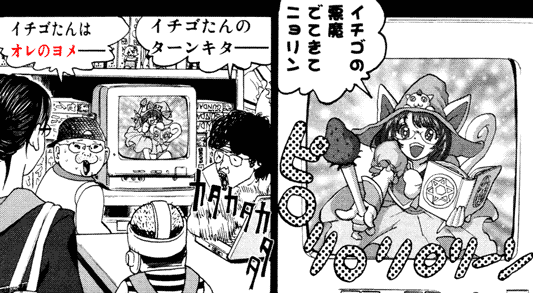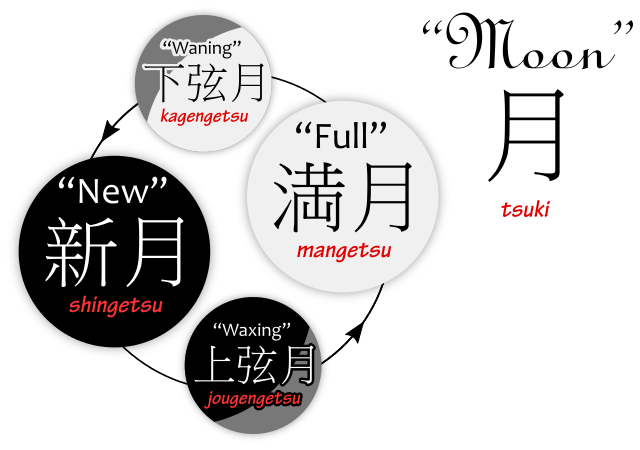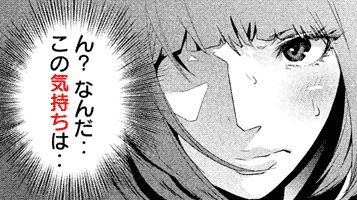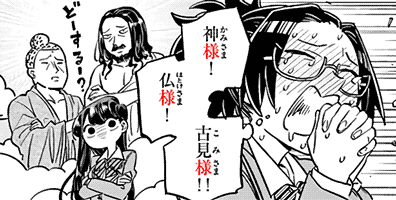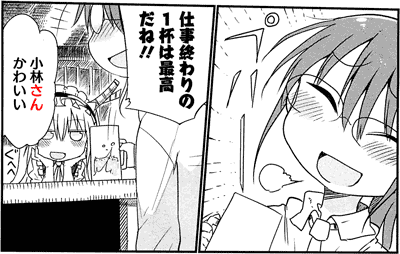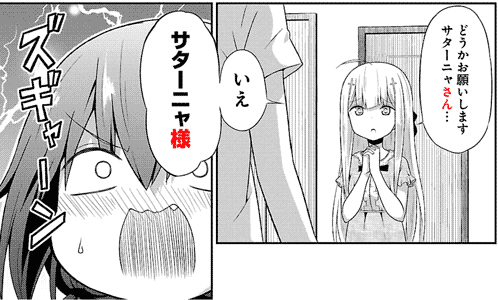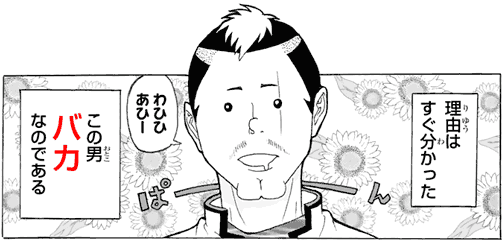otaku オタク
In Japanese, otaku オタク means a hardcore "anime fan," or, more generally, a "nerd," a "hobbyist." It's abbreviated ota オタ. Sometimes, otaku お宅 means "your house" instead, and may also mean "you," used as a second person pronoun.
moteru モテる
In Japanese, moteru モテる means "to be popular," in the sense of a guy being popular with girls, or of a girl being popular with guys. Being romantically popular. Like a bishoujo 美少女, with thousands of admirers, love letters, a boyfriend, and so on.
Not to be confused with: the homonym moteru 持てる, which means "to have" or "to hold" something; or with ninki 人気, which means "popular" in the general sense.
ikemen
In Japanese, ikemen イケメン means "hot guy," "handsome," "cool guy," as in a "pretty" guy, an "attractive" guy. It's a slang. Similar words include bishounen 美少年, "beautiful boy," and binan 美男, "beautiful man."
Anime: Masamune-kun no Revenge, 政宗くんのリベンジ (Episode 1)
bishoujo 美少女
Anime: Saiki Kusuo no Psi-nan 斉木楠雄のΨ難
Body Parts
Let's start with the word for "body" in Japanese: karada 体. It's often read tai 体 when it's part of another word, e.g. tainai 体内, "inside of the body.
"Body" in Japanese
There are various ways to say "body" in Japanese. A physical body is karada 体, or karada 身体, but the word mi 身 is used in some cases. The morpheme tai 体 is used to refer to aspects of the body. And words like nobody, somebody, anybody, everybody are formed with dare 誰 plus some particle.
This article is about the word for whole "body." See Names of Body Parts in Japanese for a list of terms for specific parts.
Moon Phases in Japanese
The terms for the "moon phases" in Japanese, gessou 月相, would be:
| English | Romaji | Kanji |
|---|---|---|
| New Moon | shingetsu | 親月 |
| Waxing crescent Moon | jougengetsu | 上弦月 |
| Full Moon | mangetsu | 満月 |
| Waning crescent Moon | kagentsu | 下弦月 |
The word for "Moon" in Japanese is tsuki 月, e.g. tsuki ga kirei 月がきれい, "the Moon is pretty." This word is the kun'yomi 訓読み of the kanji, getsu is the on'yomi 音読み.
omake おまけ
kimochi 気持ち
shounen, shoujo, seinen, josei 少年, 少女, 青年, 女性
What's a shounen manga? A shounen anime, or even just "a shounen"? What's the difference between shounen, shoujo, seinen, and josei? What's the meaning of these words in Japanese?
They are demographics: shounen 少年, "boys," shoujo 少女, "girls," seinen 青年, "young men," and josei 女性, "women." A shounen anime is so-called because it adapts a shounen manga, which is so-called because it's serialized in a shounen magazine, which is so-called because it targets a "boys" demographic, its primary audience are underage boys, it's marketed toward them.
By the way, "a shounen protagonist" is the protagonist "of" a shounen manga/anime, not a protagonist who "is" a shounen, i.e. not a boy protagonist, a protagonist of a series for boys.
Note: not to be confused with shounen-ai and shoujo-ai, which, in English, refers to gay and lesbian genres of manga and anime.
Oniichan, Oneechan, Otouto, Imouto
Animals in Japanese - Vocabulary
~dono ~殿 (Honorific Suffix)
In Japanese, ~dono ~殿 after someone's name is a honorific suffix used in formal letters, and in historical anime about samurais, or by anachronistic characters, or by otaku オタク characters.
Not to be confused by the interrogative pronoun dono どの, "which."
yobisute 呼び捨て
For example, if there's someone called Tarou 太郎, people normally call him: Tarou-san 太郎さん, with the san さん honorific. If you call him by just his name, Tarou 太郎, then that's yobisute.
~kun ~君 (Honorific Suffix)
In Japanese, ~kun ~くん after someone's name is a honorific suffix used toward boys, male mascot characters, and subordinates, employees or pupils of either gender. It's also spelled ~kun ~君, with the same kanji as the word kimi 君, "you."
Not to be confused with kun 訓, which is the kun'yomi 訓読み reading of a kanji.
~chan ~ちゃん (Honorific Suffix)
In Japanese, ~chan ~ちゃん after someone's name is a cutesy honorific suffix generally used toward girls and children.
~sama ~様 (Honorific Suffix)
In Japanese, ~sama ~様 after someone's name is a honorific suffix, used to refer to people with reverence and respect. It's also spelled ~さま,
In real life, it's used toward customers, clients. In anime, it's used by a slave or servant to refer to their master, lord, or lady. To refer to deities, and to other beings who are superior to the speaker.
~san ~さん (Honorific Suffix)
In Japanese, ~san ~さん after someone's name is a honorific suffix, not to be confused with the homonymous number "three," san 三.
The san さん honorific is the most neutral and common of all honorific suffixes. In modern Japan, it's normal to call someone by adding san さん after their names. For example: Tarou-san 太郎さん. In English, this is often translated as "Mr." or "Ms.," like Mr. Tarou.
Honorific Suffixes
In Japanese, honorific suffixes are words like san さん, chan ちゃん, kun くん, and sama 様, which are written or said after a person's name when addressing them.
They're also called honorific titles, or keishou 敬称.
There are dozens of them, and they're used for dozens of reasons.
Dere Types: Tsundere, Yandere, Kuudere, Dandere + Others
baka 馬鹿, バカ
In Japanese, baka バカ, also spelled 馬鹿, ばか, means "stupid" or "idiot." It can mean that someone is stupid, or did something stupid. Or is stupid about something, i.e. fixated on it. That's stupidly high, i.e. absurdly high, extremely so. Or that it became stupid in the sense of it stopped functioning.
Manga: Saiki Kusuo no Psi Nan 斉木楠雄のΨ難 (Chapter 2, 最低Ψ悪!?燃堂力)
